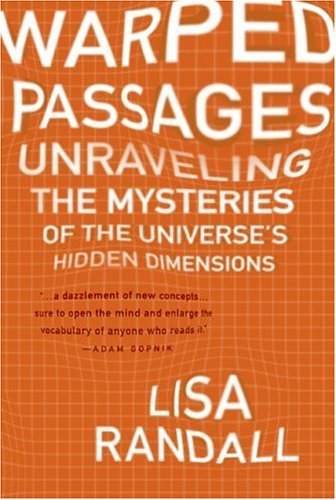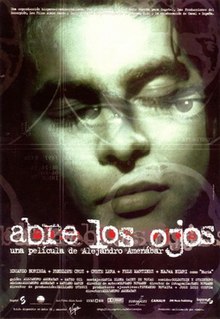Generation Why?
by Zadie Smith
The New York Review of Books
How long is a generation these days? I must be in Mark Zuckerberg’s generation—there are only nine years between us—but somehow it doesn’t feel that way. This despite the fact that I can say (like everyone else on Harvard’s campus in the fall of 2003) that “I was there” at Facebook’s inception, and remember Facemash and the fuss it caused; also that tiny, exquisite movie star trailed by fan-boys through the snow wherever she went, and the awful snow itself, turning your toes gray, destroying your spirit, bringing a bloodless end to a squirrel on my block: frozen, inanimate, perfect—like the Blaschka glass flowers. Doubtless years from now I will misremember my closeness to Zuckerberg, in the same spirit that everyone in ’60s Liverpool met John Lennon.
At the time, though, I felt distant from Zuckerberg and all the kids at Harvard. I still feel distant from them now, ever more so, as I increasingly opt out (by choice, by default) of the things they have embraced. We have different ideas about things. Specifically we have different ideas about what a person is, or should be. I often worry that my idea of personhood is nostalgic, irrational, inaccurate. Perhaps Generation Facebook have built their virtual mansions in good faith, in order to house the People 2.0 they genuinely are, and if I feel uncomfortable within them it is because I am stuck at Person 1.0. Then again, the more time I spend with the tail end of Generation Facebook (in the shape of my students) the more convinced I become that some of the software currently shaping their generation is unworthy of them. They are more interesting than it is. They deserve better.
In The Social Network Generation Facebook gets a movie almost worthy of them, and this fact, being so unexpected, makes the film feel more delightful than it probably, objectively, is. From the opening scene it’s clear that this is a movie about 2.0 people made by 1.0 people (Aaron Sorkin and David Fincher, forty-nine and forty-eight respectively). It’s a talkie, for goodness’ sake, with as many words per minute as His Girl Friday. A boy, Mark, and his girl, Erica, sit at a little table in a Harvard bar, zinging each other, in that relentless Sorkin style made famous by The West Wing (though at no point does either party say “Walk with me”—for this we should be grateful).
But something is not right with this young man: his eye contact is patchy; he doesn’t seem to understand common turns of phrase or ambiguities of language; he is literal to the point of offense, pedantic to the point of aggression. (“Final clubs,” says Mark, correcting Erica, as they discuss those exclusive Harvard entities, “Not Finals clubs.”) He doesn’t understand what’s happening as she tries to break up with him. (“Wait, wait, this is real?”) Nor does he understand why. He doesn’t get that what he may consider a statement of fact might yet have, for this other person, some personal, painful import:
ERICA: I have to go study.
MARK: You don’t have to study.
ERICA: How do you know I don’t have to study?!
MARK: Because you go to B.U.!
Simply put, he is a computer nerd, a social “autistic”: a type as recognizable to Fincher’s audience as the cynical newshound was to Howard Hawks’s. To create this Zuckerberg, Sorkin barely need brush his pen against the page. We came to the cinema expecting to meet this guy and it’s a pleasure to watch Sorkin color in what we had already confidently sketched in our minds. For sometimes the culture surmises an individual personality, collectively. Or thinks it does. Don’t we all know why nerds do what they do? To get money, which leads to popularity, which leads to girls. Sorkin, confident of his foundation myth, spins an exhilarating tale of double rejection—spurned by Erica and the Porcellian, the Finaliest of the Final Clubs, Zuckerberg begins his spite-fueled rise to the top. Cue a lot of betrayal. A lot of scenes of lawyers’ offices and miserable, character-damning depositions. (“Your best friend is suing you!”) Sorkin has swapped the military types of A Few Good Men for a different kind of all-male community in a different uniform: GAP hoodies, North Face sweats.
At my screening, blocks from NYU, the audience thrilled with intimate identification. But if the hipsters and nerds are hoping for Fincher’s usual pyrotechnics they will be disappointed: in a lawyer’s office there’s not a lot for Fincher to do. He has to content himself with excellent and rapid cutting between Harvard and the later court cases, and after that, the discreet pleasures of another, less-remarked-upon Fincher skill: great casting. It’ll be a long time before a cinema geek comes along to push Jesse Eisenberg, the actor who plays Zuckerberg, off the top of our nerd typologies. The passive-aggressive, flat-line voice. The shifty boredom when anyone, other than himself, is speaking. The barely suppressed smirk. Eisenberg even chooses the correct nerd walk: not the sideways corridor shuffle (the Don’t Hit Me!), but the puffed chest vertical march (the I’m not 5'8”, I’m 5'9”!).
With rucksack, naturally. An extended four-minute shot has him doing exactly this all the way through the Harvard campus, before he lands finally where he belongs, the only place he’s truly comfortable, in front of his laptop, with his blog:
Erica Albright’s a bitch. You think that’s because her family changed their name from Albrecht or do you think it’s because all B.U. girls are bitches?
Oh, yeah. We know this guy. Overprogrammed, furious, lonely. Around him Fincher arranges a convincing bunch of 1.0 humans, by turns betrayed and humiliated by him, and as the movie progresses they line up to sue him. If it’s a three-act movie it’s because Zuckerberg screws over more people than a two-act movie can comfortably hold: the Winklevoss twins and Divya Navendra (from whom Zuckerberg allegedly stole the Facebook concept), and then his best friend, Eduardo Saverin (the CFO he edged out of the company), and finally Sean Parker, the boy king of Napster, the music-sharing program, although he, to be fair, pretty much screws himself. It’s in Eduardo—in the actor Andrew Garfield’s animate, beautiful face—that all these betrayals seem to converge, and become personal, painful. The arbitration scenes—that should be dull, being so terribly static—get their power from the eerie opposition between Eisenberg’s unmoving countenance (his eyebrows hardly ever move; the real Zuckerberg’s eyebrows never move) and Garfield’s imploring disbelief, almost the way Spencer Tracy got all worked up opposite Frederic March’s rigidity in another courtroom epic, Inherit the Wind.
To Read the Rest of the Essay












